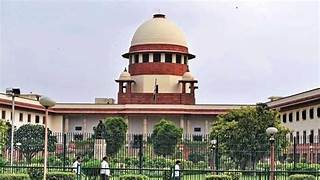Supreme Court to examine plea for ‘income filter’ in SC, ST reservations
By Administrator | National | 13-Aug-2025 14:30:42

News Story
In a move that could reshape the contours of India’s affirmative action
framework, the Supreme Court recently issued notice to the Centre on a petition
demanding an income-based filter within the Scheduled Castes (SC) and Scheduled
Tribes (ST) reservation system.
The Public Interest Litigation (PIL), filed by
Ramashankar Prajapati from the OBC community and Yamuna Prasad from the SC
community, contends that the existing quota structure fails to distinguish
between the affluent and the impoverished within SC and ST groups — allowing a
privileged few to monopolise opportunities for decades while millions remain
mired in deprivation.
A bench of Justices Surya Kant and Joymalya
Bagchi agreed to hear the plea, but cautioned the petitioners to “be ready for
strong opposition from both sides” given the deep political and social
sensitivities involved.
Appearing for the petitioners, advocate Reena
S Singh clarified they were “not disturbing the percentage of reservation” but
seeking to prioritise benefits “based on economic criteria so that those most
in need are helped first.”
‘Select
few cornering gains’
The petition argues that over the past 75 years, the gains of reservation
have disproportionately flowed to a “small but influential” segment of SC/ST
families who, through access to quality education, stable jobs, and political
clout, have secured a generational advantage.
Meanwhile, the majority of SC/ST households —
still struggling for basic education, healthcare, and dignified livelihoods —
remain excluded from the transformative impact that affirmative action was
designed to deliver.
The petitioners cite persistent poverty levels
and intra-community economic stratification as evidence that the current
system, without an income cap, is “insufficient to achieve holistic
upliftment.” They propose a ‘creamy layer’ model similar to that applied in OBC
reservations, which would bar families above a certain income and asset
threshold from availing quota benefits.
Call for
structural overhaul
The PIL also recommends targeted measures such as financial aid for the
poorest students, specialized skills training, and entrepreneurship support to
ensure sustainable livelihoods beyond government jobs.
The plea draws strength from an August 2024
Constitution Bench ruling that held SCs can be sub-classified for reservation
purposes — a judgment the petitioners say opens the door to economic prioritization.
Whether the court will endorse an “income filter” for SC/ST quotas — a politically fraught reform that could redraw the map of social justice — now hinges on the Centre’s response.